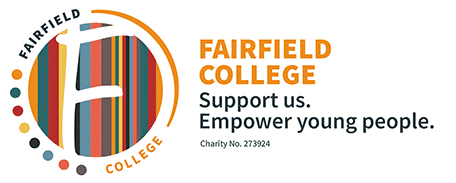SAFEGUARDING & PREVENT

SAFEGUARDING
- Promotion of your health and development
- Ensuring your safety and care
- Ensuring you are offered the best life chances
- Protection from abuse and neglect
- Prevention of bullying and harassment.
The term ‘safeguarding’ embraces both child and adults at risk, protection and preventative approaches to keep our students, staff and visitors safe. Safeguarding encompasses students’ health and safety, welfare and well-being.
Fairfield Trust is committed to safeguarding all children, young people and vulnerable adults. We believe that all children, young people and vulnerable adults have an equal right to protection from abuse, regardless of their age, race, religion, ability, gender, language, background or sexuality and consider the welfare of the child/young person/vulnerable adult is paramount.
We will take every reasonable step to ensure that children, young people and vulnerable adults are protected on all of our sites and in any setting that we are supporting them. All suspicions and allegations of abuse will be taken seriously and responded to swiftly and appropriately.
We enable all our staff and those who work with us to make informed and confident decisions regarding safeguarding. We expect everyone (staff, trustees, partners, volunteers and anyone working on behalf of the College) to have read, understood and adhere to this policy and associated policies and related procedures.
Trustees and staff, including volunteers, at Fairfield College (FC) are required to support the following philosophy statement in accordance with the principles contained within the European Convention on Human Rights and the Human Rights Act 1998 and Keeping Children Safe in Education (2020).
All individuals have the right to:
- A safe learning environment
- Confidentiality in respect of personal information, if this does not infringe the rights of other people
- Access information relating to them and their circumstances
- Make informed choices about their circumstances
- The right to the protection of the law and access to the judicial process
A full list of our policies can be found HERE
If you, as a student at the College have any concern about your well-being, safety or rights, then you should:
- Talk to your tutor
- Contact one of the Designated Safeguarding Officers – see below for details or refer to the posters found on notice boards around the college.
Useful Information
Click the links below to read our Safeguarding and PREVENT Policies.
Our Safeguarding Policy
Our PREVENT Policy
PREVENT Risk Assessment
Keeping Children
Safe in Education
Working Together
to Safeguard Children
Our Safeguarding Team
If you are a parent/carer, or a member of the public, and are concerned about the welfare, safety or rights of a student at the College, then you should contact one of our designated safeguarding officers (Call: 01373 823028) – see below.
Graeme Athey
Designated Safeguarding Lead (Trust)
Siobhan Perry
Deputy Safeguarding Lead
(Trust)
Samantha Thomas
Safeguarding Team Member (STEPs)
Sharlie Routley
Safeguarding Team Member
(YPS)
Tracylee Austin
Deputy Safeguarding Lead (College)
PREVENT
Another aspect of safeguarding is the PREVENT duty, which requires the Further Education sector to have “due regard to the need to prevent people from being drawn into terrorism”, supporting terrorism or being drawn into non-violent extremism. The overall duty for England and Wales can be found here.
There is a duty to ensure that those identified with vulnerabilities are given appropriate advice and support.
The Government has defined extremism as “vocal or active opposition to fundamental British Values”, which include:
- Individual liberty
- Rule of law
- Democracy
- Mutual respect and tolerance of different faiths and beliefs.
This includes not discriminating against those with protected characteristics (Equality Act 2010), namely:
- Age
- Disability
- Gender reassignment
- Marriage and civil partnership
- Pregnancy and maternity
- Race
- Religion and belief
- Sex
- Sexual orientation.
Under the PREVENT duty, Fairfield College has a designated Single Point of Contact, who is Dr Graeme Athey – Principal & Designated Safeguarding Lead.
College staff have been briefed on the range of vulnerabilities that would indicate that an individual may need support. Although having one or more of those characteristics will not necessarily drive someone to become a terrorist, support terrorist activity or non-violent extremism, it is a possibility, and staff are being urged to be vigilant and to refer any concerns to a safeguarding officer.
Fairfield College also regularly monitors and reviews internet use of staff and students against safeguarding and Prevent categories.

